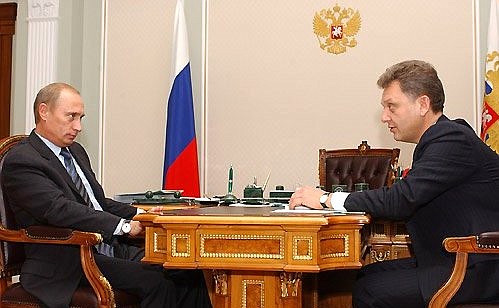
Mr Khristenko told Mr Putin that the common European economic space concept had been coordinated in the run-up to the November 2003 Russia-EU summit. Mr Khristenko said it had taken two years to assess all prospects, risks and advantages of expanded Russia-EU economic integration.
According to Mr Khristenko, customs regulation, the agro-industrial sector, non-ferrous metallurgy and other spheres had been assessed.
President Putin inquired about the influence of Russia-EU integration on the projected establishment of the common economic space of Belarus, Kazakhstan, Russia and Ukraine, as well as expanded cooperation within the format of the Eurasian Economic Community.
Mr Khristenko said it was essential to synchronise both processes, and that EU colleagues had agreed with this. He said this did not run counter to World Trade Organisation activities and Russia’s WTO accession talks.
Mr Khristenko told President Putin about the results of a meeting of the Eurasian Economic Community Council that had approved a programme of high-priority measures until 2006 and beyond, as well as an action plan regarding the commodity and services markets.